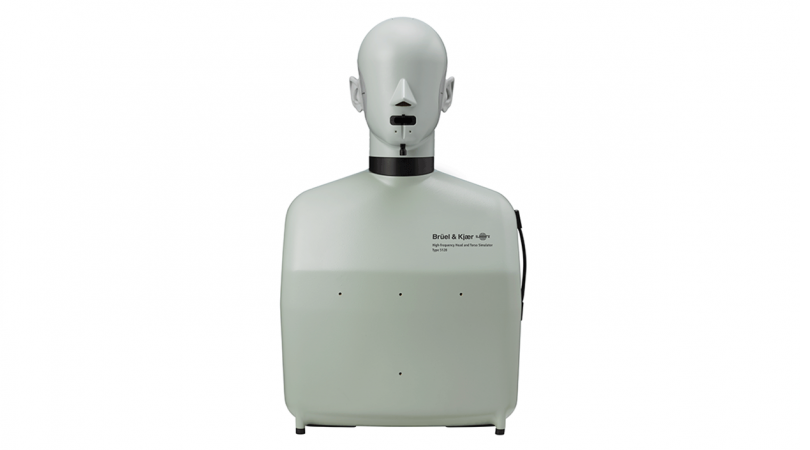1693 阅读 1 下载 2021-09-03 14:09:15 上传 188.87 KB
1. Introduction
Tess of the D’Uberville vividly presented the pathetic destiny of Tess Durbeyfield,an
innocent village girl. Hardy described the heroine as a “pure women” in the subtitle of the
novel. At that time, Hardy openly challenged the social morality by praising a woman like
Tess Durbeyfield who lost her virginity to a man rather than her husband. Hardy severely
criticized the bourgeois ethics represented by Clare, and Hardy believed that Tess was the
victim of this secular fallacy. Hardy indicated that it was the hypocrisy and cruelness of
Angel Clare that forced Tess into deep abyss of death. Through out the novel, the nature of
Angel Clare is rather deceptive to the readers, he is not the “angel” to Tess as the readers
expected, he is indeed a hypocritical devil who wants to dominate both women and the nature,
and no matter how hard he tried to declined, he was deeply influenced by the hierachical and
patriarchal values of his time.
2. Angel’s Domination of Nature
In Tess of the D’Urbervilles, Angel Clare was deeply influenced by the traditional patriarchal
values, and he had a strong desire to control both the nature and the women. Angel’s interest Education and Linguistics Research
ISSN 2377-1356
2018, Vol. 4, No. 2
http://elr.macrothink.org
112
in nature did not lie in the nature itself, but in its practical values. In his eyes, nature is a
reasonable excuse to liberate himself from the constraints of earthly world. In Tess of the
D’Urbervilles, in the introduction of Angel Clare, the writer stated clearly that Angel’s
intention was to acquire a practical skill in the process of farming, “He was the youngest son
of his father, a poor parson at the other end of the county, and had arrived at Talbothays Dairy
as a six months' pupil, after going the round of some other farms, his object being to acquire a
practical skill in the various processes of farming, with a view either to the Colonies, or the
tenure of a home-farm, as circumstances might decide”(Hardy, 186 ). Farming was Angel’s
choice to avoid worldly restraints and get intellectual liberty, “Farming, either in the Colonies,
America, or at home - farming, at any rate, after becoming well qualified for the business by
a careful apprenticeship - that was a vocation which would probably afford an independence
without the sacrifice of what he valued even more than a competency-intellectual liberty”
(Hardy, 190).
Angel’s desire to dominate the nature was based on the practical values of the nature, nature
was just a instrumental tool to make big profits to him. He always aspired to run a profitable
farming business to distinguish himself from other wordly creatures. To realize his farming
dream, he engrossed himself in learning various kinds of farming skills in different farms,
just as demonstrated in the novel “It was true that he was at present out of his class. But she
knew that was only because, like Peter the Great in a shipwright's yard, he was studying what
he wanted to know. He did not milk cows because he was obliged to milk cows, but because
he was learning how to be a rich and prosperous dairyman, landowner, agriculturist, and
breeder of cattle. He would become an American or Australian Abraham, commanding like a
monarch his flocks and his herds, his spotted and his ring-stroked, his men-servants and his
maids” (Hardy, 202). Angel’s choice of wife also reflected his instrumental values. In order to
be a thrift hardworking farmer, Angel needed a wife who is able to “milk cows, churn good
butter, make immense cheeses; know how to sit hens and turkeys, and rear chickens, to direct
a field of labourers in an emergency, and estimate the value of sheep and calves?” (Hardy,
236). Tess D’Urbervilles was undoutably the ideal helpmate of an agriculturist, which was
one of the most important reasons for Angel Clare to choose Tess as his wife. In this case,
nature was just a practical instrument to Angel Clare, however, his aspiration to dominate the
nature never succeeds, he was never a successful farmer. He was badly hurted in Brazil when
he experimented his ideals. As a representative of androcentric values, Angel suffered badly
in the end of the novel.
3. Angel’s Domination of Women
The influence of traditional patriarchal values in Angel Clare culminated in his eargerness to
dominate women. Both women and nature were just tools for Angel Clare, and their appeal to
Angel did not lie in themselves but in their practical values. Throughout the novel, Angel
demonstrated a strong desire to control women including Tess D’Urbervilles, his lover. To
Angel Clare, Tess was just a visionary essence of woman, a typical form of a whole sex. In
their early contacts, Angel did not like Tess’ name, he preferred to call her Artemis, Demeter,
and other fanciful names, to his disappointments, Tess did not accept Angel’s nicknames
because she did not understand their meanings. On the one hand, Angel Clare admired Tess Education and Linguistics Research
ISSN 2377-1356
2018, Vol. 4, No. 2
http://elr.macrothink.org
113
for her natural beauty, on the other hand, his aspiration to tame Tess never disappeared in
their contacts. To Angel Clare, Tess was just a imaginary perfert woman who only exist in his
minds. He had a strong desire to civilized Tess in his own stubborn way, at the beginning of
their contacts, he always tried to change Tess into his own imaginary goddess. Angel tried to
tame Tess by teaching her history and civilization, and he liked to judge Tess from the
perspective of a philosopher, an outsider. “Tess was the merest stray phenomenon to Angel
Clare as yet - a rosy warming apparition which had only just acquired the attribute of
persistence in his consciousness. So he allowed his mind to be occupied with her, deeming
his preoccupation to be no more than a philosopher's regard of an exceedingly novel, fresh,
and interesting specimen of womankind” (Hardy, 185). Tess was never a real living
individual to Angel, and she was more like a typical reflection of his domination of women.
Angel’s domination of Tess reached the peak when he refused to admit Tess’ chastity. To
Angel, a woman’s virginity should only be obtained by her husband, Tess was not qualified to
be his wife if she lost her virginity before marriage. The stubborn fossil morality of Angel
finally pushed Tess into abyss of agony. Angel refused to admit Tess was his lover, and he
insisted that Tess was “dead”, and he even tortured Tess by lying her into the stone coffin. A
woman without virginity was not qualified to be his lover, and he would never show any
respect to the woman who lost her virginity to other man except her husband. In his mind, a
husband own complete control over his wife, his weirdness and stubbornness obviously
showed his indignation and voidness when he lost control of Tess. All of his passion and
warmth were replaced by repulsion and aversion. And since he could not change the cold
reality, the only choice for him was to escape, and from the moment he abandoned Tess, his
image of a righteous gentleman was completely shattered. He admitted:” let me speak plainly,
or you may not see all my difficulties. How can we live together while that man lives? - he
beingyour husband in Nature, and not I. If he were dead it might be different...Besides, that's
not all the difficulty; it lies in another consideration - one bearing upon the future of other
people than ourselves. Think of years to come, and children being born to us, and this past
matter getting known - for it must get known. There is not an uttermost part of the earth but
somebody comes from it or goes to it from elsewhere. Well, think of wretches of our flesh
and blood growing up under a taunt which they will gradually get to feel the full force of with
their expanding years. What an awakening for them! What a prospect! Can you honestly say
Remain, after contemplating this contingency? Don't you think we had better endure the ills
we have than fly to others” (Hardy, 216). His absolute selfishness of mentioning the
predicament of their children in the future was the last straw to Tess. Tess had no choice but
to admit her inferiority and leave Angel. Tess was never a perfect woman for Angel because
she was always an independent living individual who never yielded to the patriarchal society.
Angel never truly dominates Tess which was the main reason for him to abadon Tess in the
end.
4. The Hierarchical Values in Angel
Born to be a son of a clerical family, Angel Clare can not get rid of the limitness of the class
which he belongs to, and the hierarchical values are strongly rooted in his minds from
beginning to the end of the novel. No matter how hard he tried to be mixed with the lower Education and Linguistics Research
ISSN 2377-1356
2018, Vol. 4, No. 2
http://elr.macrothink.org
114
class, he could not hide his feelings of superiority above others. No matter how diligently he
worked in the dairy, his identity as an upper class never changed. His work in the dairy was
just his growing process of learing new practical skill which would prepare him for a better
and profitable career as a master of farm. He worked not because he had to, but because he
wanted to learn practical skills.
In the farm, Angel always managed to do all kinds of farm chores, however, the dairyman’s
reverence and modesty toward him always distinguish him from other workers in the farm.
Even Tess was astonished why Angel should be addressed as “Sir” even by the master of the
dairy. Angel felt undignified at the beginning of sitting down as a equal member of the
dairyman’s household. And “by Mrs Crick's orders, who held that he was too genteel to mess
at their table, it was Angel Clare's custom to sit in the yawning chimney-corner during the
meal, his cup-and-saucer and plate being placed on a hinged flap at his elbow” (Hardy, 156).
In the dairyman’s house, Angel sat alone and had his own table while eating because Mrs
Crick thought it was demeaning for Angel to sit on the same table with other workers, and he
even had his own comfortable room wher he can read and play harp at his ease. Those
priorities Angel enjoyed in the farm indicate his superior social status, and Angel’s
acceptance of those benefits implied he deep rooted hierarchical values in his minds.
He had his own pride and principle as a member of upper class, and no matter how hard he
tried to be a real member of the dairy, his ideas were strongly influenced by the hierarchical
values, which corresponded with his identity as a member of the upper class. His
determination to marry Tess was also considered as a sacrifice for love. In his mind, Tess was
not the perfect woman for him considering social status. “‘My position - is this,' he said
abruptly. ‘I thought - any man would have thought - that by giving up all ambition to win a
wife with social standing, with fortune, with knowledge of the world, I should secure rustic
innocence as surely as I should secure pink cheeks” (Hardy, 231) In order to make
compensations for his sacrifice in marriage, he expecter a rustic innocent wife, Tess’ loss of
virginity was unbearable to Angel although he was also not pure before marriage. It was
obvious that Angel’s stubbornness on hierarchial values have smashed all the relationship
between Tess and him.
5. The Patriarchal Values in Angel
In the novel Tess of the D’Urbervilles, Thomas Hardy stated over again and again his
expectation of equal relationship between man and woman, and Tess was the typical
representative of a fighter against patriarchal society. And the conflict between Tess and
Angel was inevitable because Angel was deeply influenced by the patriarchal values which
were imparted to him when he was a boy. Angel Clare was a hypocritical, selfish, cruel man
throughout the novel.
Angel’s patriarchal values were clearly demonstrated in his love with Tess. In his eyes, Tess
was never a real living individual, she was just a idealized goddess who only existed in his
imaginations. Tess always tried hard to confirm that she was just a common milkmaid, not
any other goddess he had wanted. Before Tess’ confession of her loss of virginity, Angel did
love Tess, but this love was not based on real life. And Angel’s love to Tess was selfish as he Education and Linguistics Research
ISSN 2377-1356
2018, Vol. 4, No. 2
http://elr.macrothink.org
115
loved himself more. The aim of his love is to get some profits other than to make sacrifices. It
was futile for Tess to try to change Angel’s minds which was strongly influenced by
patriarchal values. After the confession of Tess, Angel’s dream of obtaining an ideal wife fell
apart, and almost at the same time, Tess was regarded as a devil to Angel. Just as Tess
defended that she never deceived Angel, and it was Angel who never treated Tess as a
livingindividual. “‘What have I done - what have I done! I have not told of anything that
interferes with or belies my love for you. You don't think I planned it, do you? It is in your
own mind what you are angry at, Angel; it is not in me. O, it is not in me, and I am not that
deceitful woman you think me!'” (Hardy, 233). Angel was not angel to Tess who can bring
her comfort and love, indeed Angel was the devil for Tess who hurted her dreadfully in the
mind. And Tess would never be the househould “Angel” to Angel Clare, Tess’s female
consciousness growed as the development of the plot, and Tess would never sacrifice herself
to satisfy the selfish needs of the men. Tess, as the daughter of the nature, would inevitably be
abandoned by Angel Clare, a traditional hypocritical and patriarchal man. Just as Thomad
Hardy stated in the novel, “Within the remote depths of his constitution, so gentle and
affectionate as he was in general, there lay hidden a hard logicaldeposit, like a vein of metal
in a soft loam, which turned the edge of everything that attempted to traverse it. It had
blocked his acceptance of the Church; it blocked his acceptance of Tess. Moreover, his
affection itself was less fire than radiance, and, with regard to the other sex, when he ceased
to believe he ceased to follow: contrasting in this with many impressionable natures, who
remain sensuously infatuated with what they intellectually despise” (Hardy, 238). It was
Angel’s stubbornness on the patriarchal values that have shattered all the love between Tess
and Angel. He had been one of the murders who destroyed Tess completely
6. Conclusion
In Tess of the D’Urbervilles, the nature of Angel Clare is deceptive. He is not the angel as the
name indicates, on the contrary, he was a hypocritical secularist who wanted to dominate both
women and nature, and the hierachical and patrichal values were deeply rooted in his blood.
No matter what he said and did, he belonged to the upper class who had an inherent despise
for the lower class. The stubborn adherence to the old fashioned values finally destroyed
every wonderful thing in his life. He was not qualified to deserve Tess, the daughter of nature.












